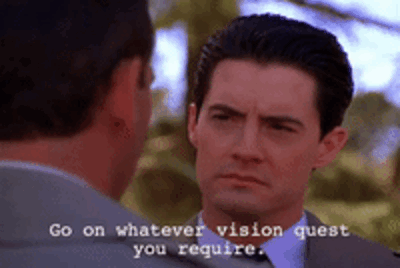Recently I’ve found myself having conversations with people who are looking at their careers, and wondering whether they should be finding their day job more meaningful. While it’s perfectly possible to make a healthy living as a skilled practitioner who remains detached from the substance of their role, having a sense of purpose about your work can help to deliver that motivational kick to get you through your toughest projects. (“Purpose” is one of the three tenets of motivation, as outlined by Daniel Pink in his seminal book Drive.)
A less well-known book which has recently given me a lot of personal insight on this subject is Tom Morin’s Your Best Work, in which the author shares his own stories of pursuing roles which were seen externally as being “meaningful” (including military service, and intensive labour work), before realising - typically after his job had actively tried to kill him - that he needed to personally reassess what was important to him.
It’s a compelling read that’s worthy of your absorption, but if you’re finding yourself on a similar quest for meaning, I’d like to summarise one of Tom’s suggestions to help you discover how to intentionally make change happen to move you towards a more authentic working life. He calls this the VPB: Vision, Promise and Behaviours
Your Vision
You’re probably most familiar with “vision statements” from appearing on your organisation’s About page, or on the first slide of company presentations. A personal vision is similar, insofar as it’s very different to our traditional goal-oriented way of personal thinking: a vision isn’t “achieved” and then discarded (or replaced with other goals), it’s a way of life that we seek to undertake every day.
Tom’s book has more detail about how to set an effective personal vision, but in brief, he states that it must describe a feeling/emotion (one or two descriptors about how you feel when you’re doing your best work); an action (an active verb describing the nature of your work, such as “implementing” or “leading”); and it should be concise (ideally a single sentence of fewer than 15 words, to reinforce the importance of each individual word).
- An example that Tom gives is: Joyfully (feeling/state) developing (action) and implementing (action) effective social media strategies for large corporations.
- If I were to summarise a vision for my work at Mojovation Consulting, it might be: Positively (feeling/state) facilitating (action) a better life for tech professionals by mentoring (action) their career growth.
Your Promise
A promise isn’t a goal either; it’s more like a single personal statement of intent which you should be capable of performing every day (perhaps even multiple times per day), the action of which will reinforce your ability to live your vision - and every time you keep your promise, it should move you closer to your view of deeply meaningful work.
Some of Tom’s suggestions include:
- Every day, I will learn something that will help me to achieve my vision.
- Every day, I will challenge my values and beliefs in a way that will help me achieve my vision.
Your Behaviours
One of the best ways to make lasting meaningful change is by developing new “habits” - ways of acting which come so naturally that you don’t even have to think about doing them. (A good musician, for example, doesn’t need to think about how to play any given note; practice, repetition and muscle memory will take care of it for them.)
When you think of it this way, you can’t develop habits overnight, but you can behave in ways which will encourage them to develop. Behaviours should always create a demonstrably positive change in your work life, should be able to be performed weekly (or multiple times a week), and may include the need to collaborate with others. Example from Tom’s book include:
- I maintain awareness of opportunities with prospective employers.
- I care for my physical and mental health.
Living your VPB
I’m only skimming the surface of how Your Best Work explains the benefits of a VPB, as the book also contains a wealth of advice on how to convert your VPB into actionable goals and tasks. If the concepts that I’ve covered above are interesting, then I’d definitely recommend picking up a copy, or I’d be happy to work through the exercise with you during a coaching session. (Shameless plug: drop me a line.)
Key takeaways 📝
- Goals often fail to create lasting change, as they’re subsequently replaced with other - different - goals.
- We all find meaning in different things, and meaningful work is essential for finding your motivation.
- A VPB (Vision, Promise, Behaviours) attempts to define what it means for you to do meaningful work, and the small regular behavioural changes that can nudge you closer towards it.

